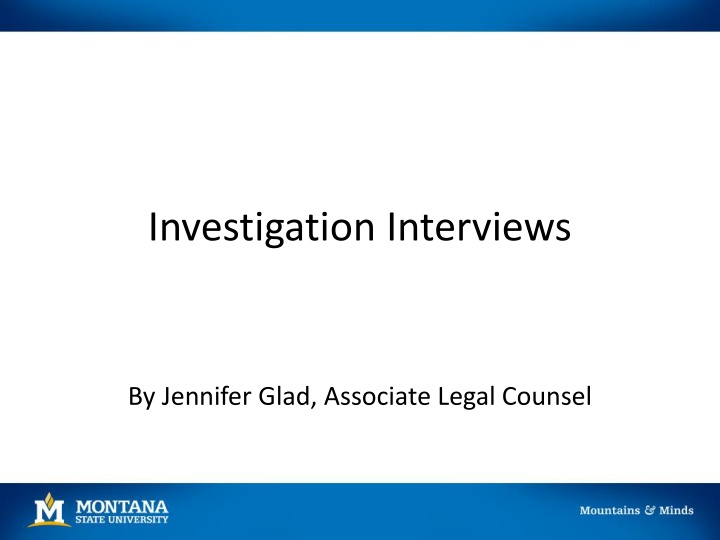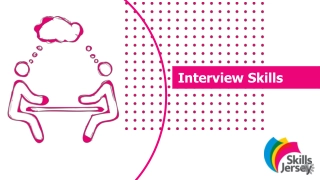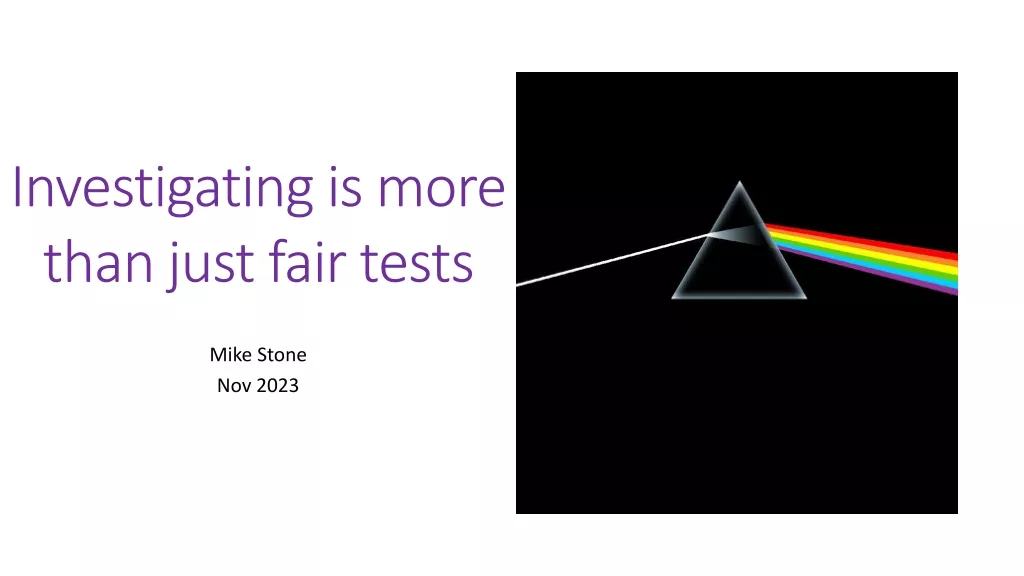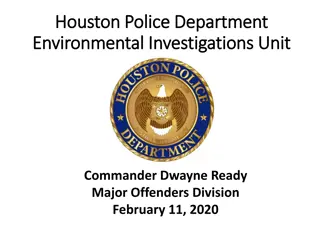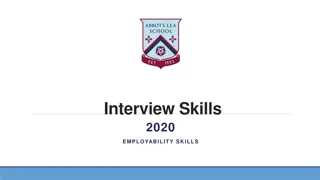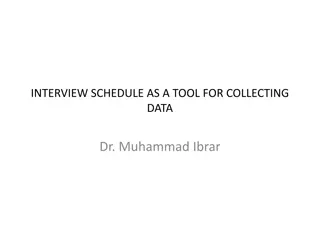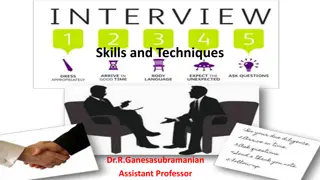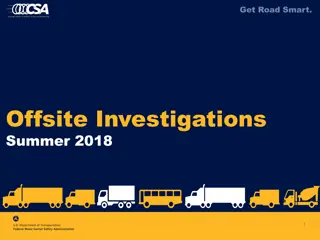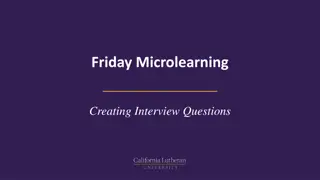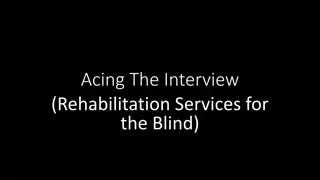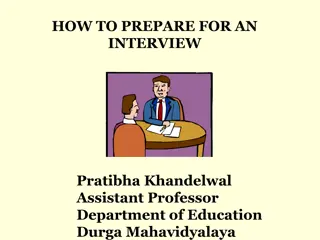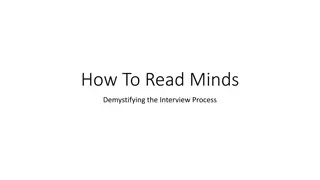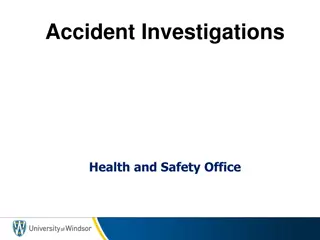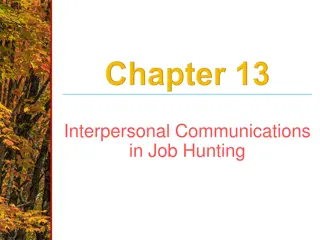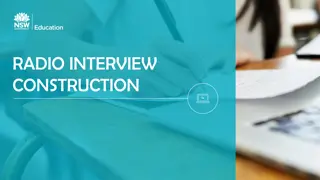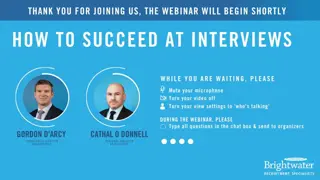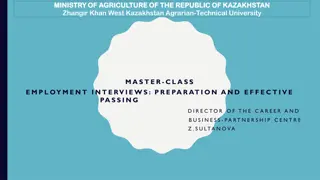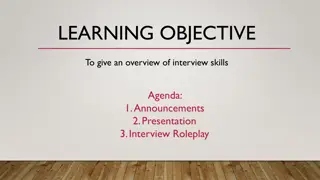Effective Interview Strategies for Investigations
Explore a comprehensive guide on conducting investigative interviews by Jennifer Glad, Associate Legal Counsel. From identifying witnesses to asking relevant questions, this resource covers crucial steps like interview planning, preparation, and execution. Learn about establishing rapport, handling sensitive information, and avoiding common pitfalls to conduct thorough and professional interviews during investigations.
Download Presentation

Please find below an Image/Link to download the presentation.
The content on the website is provided AS IS for your information and personal use only. It may not be sold, licensed, or shared on other websites without obtaining consent from the author.If you encounter any issues during the download, it is possible that the publisher has removed the file from their server.
You are allowed to download the files provided on this website for personal or commercial use, subject to the condition that they are used lawfully. All files are the property of their respective owners.
The content on the website is provided AS IS for your information and personal use only. It may not be sold, licensed, or shared on other websites without obtaining consent from the author.
E N D
Presentation Transcript
Investigation Interviews By Jennifer Glad, Associate Legal Counsel
Interview Plan Identify witnesses to be interviewed (parties, others with relevant information) Determine order of interviews Develop a list of questions based on allegations, potential policy violations, available documents, etc. Interview as soon as possible to keep memories fresh, preserve evidence, etc. May have to conduct follow up interviews to address new information or discrepancies and allow opportunity to respond to new allegations
Prepare for the Interview Review relevant policies, procedures, collective bargaining agreements, etc. Review relevant evidence (documents, statements, photos, etc.) Develop a list of questions based on allegations, potential policy violations, available evidence, etc.
Initial Interviews Explain your role as the investigator Explain the investigation process and timeline Explain whether the individual will get a copy of any report Address confidentiality concerns and expectation that the witness will not discuss the investigation Address any reluctance to participate in the investigation Issue retaliation warnings
Interview Basics Treat all parties with respect Develop a rapport with the witness Ask open ended questions followed by specific questions Ask embarrassing or unfriendly questions towards the end of the interview Allow for silence it may precede revealing disclosures Establish a timeline of events When appropriate tailor questions to the allegations/policy Confirm W has first-hand knowledge or if not have them explain what they are basing their statements on Be aware of potential bias concerns either for or against a party
Interview Donts Don t rush Don t make assumptions Don t promise confidentiality Don t interrupt the witness Don t ask for a legal conclusion (e.g., did you see him sexually harass her ) Don t shy away from important questions or difficult topics
Interviews: Get the Details What happened? When did it happen? Where did it happen? How did it make you feel? Who was there? What did they see? Who did you tell? What did you say? Any witnesses or relevant documents (texts, social media, email, etc.)? Nature of relationship between the parties?
Initial Meeting or Intake Interview Purpose of the initial meeting or intake interview is to: Identify all issues (e.g., sexual harassment, discrimination, etc.) Gather material facts Identify potential respondents Determine if a formal investigation is necessary Make sure the employee understands the process and has confidence in the system
What if the Respondent Accuses the Complainant of Not Telling the Truth? Explore possible motives of Complainant: Any reason to believe the Complainant would make the allegations up? Relationship between the parties? Has the Respondent had any prior conflicts or problems with the Complainant?
Interview Notes Interview notes should be factual (what was said, demeanor, etc.) Notes are discoverable so avoid sarcastic comments, etc. Finalize interview notes upon completion of interview or as soon as possible Have witnesses sign off on notes/summary Identify any changes made to notes/summary by witnesses
Who Makes Credibility Assessment? Title IX Investigation Investigator does NOT determine credibility Investigator makes factual findings that may impact credibility All factual credibility concerns should be reflected in the report HR Investigation Investigator assesses credibility and makes findings regarding credibility
Credibility Assessment Demeanor (avoid eye contact or answering questions, tone, etc.) Inconsistent statements Does the timeline of events make chronological sense Corroborating evidence (documents, testimony, etc.) Whether a story changed over the course of the interview or investigation, or when presented with contradictory facts Does the witness s version of events seem logical? Potential bias (relationship, interest in outcome, etc.) Past record (e.g., similar complaints, etc.)
